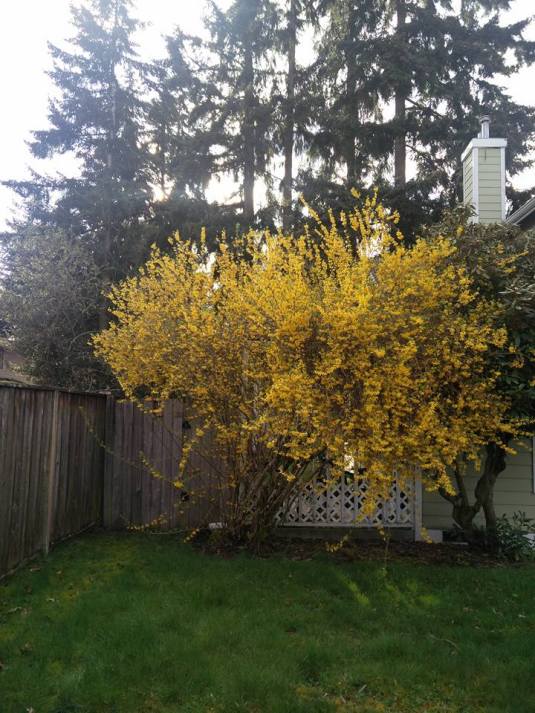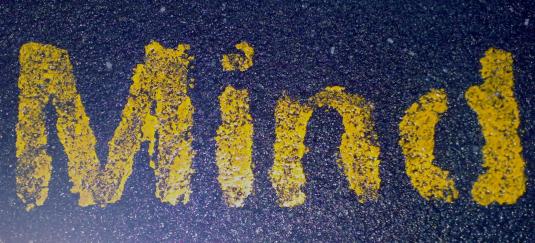I’m closing out the year with this final entry in this series of posts that has both informed my spiritual development of this year and the course of this blog as well. I’m closing this narrative with a long set of connected thoughts about letting go–both my own and some quotes that have inspired me. This year is done, and this chapter in my story comes to a close as well. May this inspire those of you out there who have also gone through heartbreak.
What is the perfection of wisdom? Let’s look at some important elements that are the core of our practice as well as our lives. In face-to-face study, a student expresses agony over a relationship that ended two years ago and asks me how to let go. What is letting go?There is a little toy called a Chinese finger-trap. You put two fingers into it, then try to pull them out. But you can’t extricate your fingers from the trap by pulling: it’s only when you push your fingers further in that the trap releases them. Similarly, we think of letting go as doing something: throwing things away, ending a relationship, getting rid of whatever’s bothering us. But that works no better than pulling our fingers in order to extricate them from the trap. We let go by eliminating the separation between us and what we wish to let go of. We become it.
Do we let go of anger by saying good bye or going away? Of course not! That doesn’t work. The way to let go of anger is to enter the anger, become the anger rather than separate from it. If you even hold on to the notion of having to let go of it, you’re still stuck. In a famous koan, a monk went to Chao-chou Ts’ung-shen and asked, “What shall I do now that I’ve let go of everything?” Chao-chou said, “Let go of that!” The monk said, “What do you mean, let go of that? I’ve let go of everything.” Chao-chou answered, “Okay, then continue carrying it with you.” The monk failed to get the point. Holding on to letting go is not letting go.
We don’t get rid of anger by trying to get rid of it: the same applies to forgetting the self. To forget the self means to become what is, become what we are. How do we let go of a painful relationship? Become the person we wish to let go of, become the pain itself. We think we’re not the person, not the pain, but we are. Eliminate the gap between subject and object and there’s no anger, no loss of relationship, no sorrow, no suffering, no observer sitting back and crying, “Poor me!”
The Chinese finger-trap is solved by going further into the trap, and the same is true of letting go: Go into it. If you avoid the situation, it only gets worse. Totally be it; that’s letting go. Similarly, when we sit, it’s not a question of trying to do something. Don’t sit there saying, “I have to accomplish this. I have to attain that.” Just let go and be what you are, be this very moment. If you are breathing, just be breathing, and you will realize that you’re the whole universe, with nothing outside or external to you. The beautiful mountain–that’s you. Anger, lust, joy, frustration–they’re all you: none are outside. And because there’s no outside, there’s also no inside; altogether, this is you. This is the meaning of Shakyamuni Buddha’s “I alone am!”–Bernie Glass, from Infinite Circle

I intended to write this post a couple months back around the time of my birthday, but I never got to it, and I can only believe that it wasn’t ripe. I was reading the book quoted above around the same time, but this quote means so much more to me reading it again now. This is my last Heartbreak Wisdom Journal entry. After all the steps in the spiritual path of heartbreak, I’ve finally reached the realization that continuing these narratives is not fully letting go. It’s time to let go of letting go. That’s the step forward on the path of the spiritual heart. That’s the tender vulnerability that was described in the first entry. We come full circle: nothing outside.
Let my birthday journal entry, Morning Pages from a couple months back, serve as an intention in this step forward:
“Well, 33! Made it!
I’ve been thinking of this particular one for a while. As a teenager, I loved the Smashing Pumpkins’ “33”. It is now my theme song for a year, I suppose. That’s odd, in a way, as it’s a romantic song about another person making existence beautiful:
– ” You could make it last, forever, you.”
Clearly, after the year I’ve had, I just don’t feel that way about anyone, and I wonder if I ever will again. In many ways, I totally don’t respect those concepts of romance, especially as a guiding light in the life of a person. Well, maybe I can transform that into something less deluded–transmutation.
That reminds me: I’ve been thinking a lot recently about just that. I want to handle my story around the heartbreak of the end of my relationship in a very particular way. I don’t want to cast her as a monster or villain. I don’t want to cast myself as hero or victim. It simply was. It was, however, not justified–another story that explains away–no matter what came after. Again, it simply was–the complicated interweaving of sharing life and love with other people. In the end, she simply decided that she wanted something different. That’s all.
In the end, this suffering has been, as is suffering in general, useless. That’s actually one of the best philosophical essays I have read: Levinas’ “Useless Suffering”. Explaining away my pain–to myself or the explanations of others–is ultimately an unwillingness to sit with, see, and genuinely feel the agony of a broken heart. Again, it simply is, and any meaning or story that makes it OK or gives it a telos covers it over and masks it. There is beauty in the rawness, and the only use is to sit with it and be inspired to compassion for others, to aim at liberating oneself and all sentient beings from such anguish.
So, no, I won’t cast stones. However, I will transmute–that earlier thread of connection–the love I reached for her into this compassion for all. I’ll blow the lid off of the Love of an Other that completes my Self and move to a warmth for all that exists. May I step forward on the path for the benefit of all sentient beings.”
Tonight–before writing any of this or reading these quotes again–I sat down and did a mantra meditation with mala in hand, counting–bead by bead.
Om mani padme hum.
Om mani padme hum.
Om mani padme hum.
…
…
…
108 times.
I focused my attention on Kwan Yin/Avalokitesvara/Chenrezig/Kannon–the listener to the cries of the world, bodhisattva of compassion. As I repeated the words and contemplated Avalokitesvara with his hundred arms–reaching out to touch the lives of all sentient beings, I felt my own loving-kindness swell, and I flashed on those who have done me pain, who have stoked my anger or sadness… I realized, as separation of I/Them dropped away, that They are I and I am They. Her face flashed by amidst others, and I saw tears and felt her fear, her anxiety. I embraced her feelings with loving-kindness. Many others flashed by as well. Among them all, my own face flashed up, my angry, sad face, tormented by delusion, struggling with all the cares of being human. I compassionately embraced this too. As Glass Roshi said in the initial quote above: “Anger, lust joy, frustration–they’re all you: none are outside. And because there’s no outside, there’s also no inside: altogether this is you.” — For a brief moment, I sat in this compassion and wisdom, in this karuna and prajna…
Then, like always, my mind flitted back to ordinary shenanigans–always room for more practice.
After meditating, I lay down and finished reading a graphic novel, weathering a slight stomachache. The closing words rang true and inspired me to sit down and write this entry. We shall close with them:
I can’t give you your hope. You have to grow your own and hold it through the seemingly endless darkness. The true task–to find joy in the small things we can count on.
When we stop taking pleasure in the basic experience of being alive, beat-by-beat, we lose everything that makes life worthwhile. We must relish in every sight, every touch…
… Every memory. My daughters playing in the garden. Johl kissing my neck. Marik’s elation at a new invention. These memories are enough to light my darkest hour. To face whatever awaits above. We all of us carry burdens that seem too heavy. … Losses we can’t conceivably move past. The things that once gave purpose to life. It is all too easy to give yourself over to the traumas of the past–allowing pain to define us. There is a medicine for that–hope and perseverance. Light brings light. And no matter what we face there is one thing we can control: our outlook. It’s not about ignoring the pain or mindlessly believing things will simply be better–it’s about finding the joy in participating. And when the weight of the past pulls us low we must find the strength to release it…
…and finally give ourselves permission to start over.
-Rick Remender, Low: Volume 2, closing passage
The character, Stel, finds the hope to start fresh, letting go of the past, but she doesn’t do this by running away from it–ignoring it–or by blindly believing that the future will make everything right again. She’s neither lost in the pain of the past nor in a dream of a hazy, euphoric future. She’s faced all of her ghosts by sitting with everything as it was and as it currently is. She’s fully taken on her pain, her burdens. She realizes that in becoming them, the weight of the past drops with the permission to start over. That permission is always at hand, right now. It merely takes the warrior’s courage to let go: to fully be here as we are. That’s what starting over is. This may begin with holding on to the wonders of golden experiences, but this sagely wisdom fully blossoms in participating joyously in every moment of life, even the most painful or burdensome. This is wrongly called “hope” because it’s not about that belief in a future deliverance; it’s actually “faith”–trust in and no separation from all that is. This is recognizing the basic goodness of existence, and it is a clear step forward to liberation: happiness that does not rely on the conditioned.

May this light the path to letting go of heartbreak for those who need it.
Gassho!
Previous Heartbreak Wisdom Journal Entry– Entry 12: Heartmind’s Abundance













Recent Comments